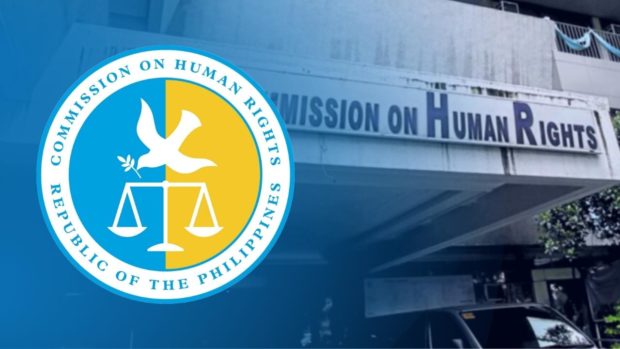CHR acts on complaints vs police, AFP ‘profiling’

Commission on Human Rights INQUIRER FILE PHOTO
Go easy on the profiling.
This was the message of the Commission on Human Rights (CHR) as it cautioned both the police and the military on Thursday against profiling activities targeting activists.
The CHR launched an independent investigation into cases of alleged state surveillance and profiling of members of progressive groups Gabriela and Makabayan in Tondo, Manila.
In a statement, the CHR said it had deployed its Metro Manila investigators to look into complaints filed by Gabriela national deputy secretary general Rene Rose Bihag, as well as Makabayan bloc coordinator Enrique Lozada Jr.
The two claimed that men, who identified themselves as members of the AFP Joint Task Force-National Capital Region, had been taking photographs of Lozada’s house.
On April 27, three more residents in the same area also complained of military harassment, though the CHR did not name the three. Both Bihag and Lozada live in Barangay 105 in Tondo, once a major hot spot of drug war killings during the Duterte administration.
Asking around
In a separate statement, Bihag said they first noticed being surveilled after their members attended the International Women’s Day Action in Mendiola on March 8.
The next day, she said, uniformed personnel who claimed to be part of the 11th Infantry Battalion started going around the compounds of Happyland and Aroma in Vitas, Tondo.
She said residents told her that the soldiers started interrogating the building coordinators, asking if they were members of Gabriela or Kadamay, another urban poor group.
Bihag also said a photo of her and other Gabriela leaders was allegedly being shown by soldiers to the residents. Bihag is a longtime resident of Vitas.
“It is the right of any individual to be part of any organization they wish. If there was any terrorist in the community, it’s not us but these soldiers who are fearmongering among ordinary residents,” Bihag said.
Manila Police Station 1 commander Lt. Col. Rosalino Ibay confirmed that members of the military had indeed been stationed in the area since March 9 to “augment police tasks in maintaining peace and order in Tondo.”
He defended the soldiers and their presence, saying that the troops were also carrying out feeding programs and civic activities in the community.
Guaranteed rights
But the CHR, recognizing the police and military’s efforts to uphold peace and order, said “ensuring collective good must not breach human rights, such as the rights to privacy and safety, which are guaranteed under the Constitution.”
The human rights body cautioned both police and military against profiling individuals—often used as a prelude to getting Red-tagged, or being branded as a community operative or sympathizer of communist insurgents—as it “undermines their rights.”
“Profiling or data collection can result in discrimination and may even endanger the safety, life and liberty of profiled individuals as has been the case for many members and officers of organizations that are branded as ‘leftists,’” the CHR said.
Bihag and Lozada’s cases are the latest in a series of profiling gaffes against activists and political dissidents by state agents.
Last month, lawyers’ groups in Mindanao urged the Department of the Interior and Local Government and the Philippine National Police to investigate the provincial police director of Surigao del Sur, Col. Dennis Siruno, for supposedly issuing a memorandum ordering the Lianga municipal police to profile lawyers acting as counsel to accused communist rebels.